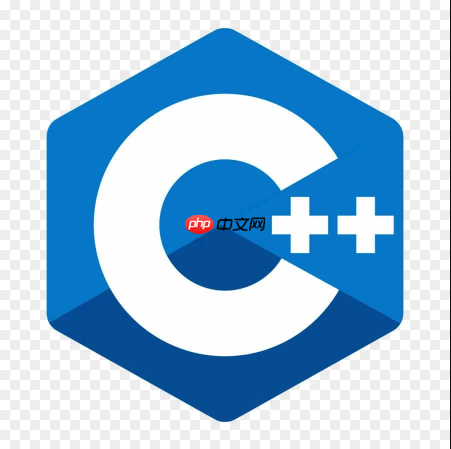
在C++中,堆操作和优先队列可以通过STL中的 算法函数 和 容器适配器 来实现。主要涉及
make_heap、
push_heap、
pop_heap等算法,以及更方便的
priority_queue容器适配器。 使用算法实现堆操作
STL 提供了一组算法用于在普通容器(如 vector)上执行堆操作。这些函数定义在
<algorithm>头文件中。 常用函数说明:
- make_heap(first, last):将区间 [first, last) 构造成一个最大堆
- push_heap(first, last):假设前 n-1 个元素是堆,将最后一个元素插入堆中
- pop_heap(first, last):将堆顶元素移到末尾,前 n-1 个元素仍为堆
- is_heap(first, last):判断是否为堆
使用示例:
#include <vector>
#include <algorithm>
#include <iostream>
int main() {
std::vector<int> v = {3, 1, 4, 1, 5, 9, 2};
// 构建最大堆
std::make_heap(v.begin(), v.end());
// 输出堆顶
std::cout << "Top: " << v.front() << "\n"; // 输出 9
// 插入元素
v.push_back(7);
std::push_heap(v.begin(), v.end());
std::cout << "New top: " << v.front() << "\n"; // 输出 9 或 7
// 弹出堆顶
std::pop_heap(v.begin(), v.end());
int top = v.back();
v.pop_back();
std::cout << "Popped: " << top << "\n";
return 0;
}
自定义比较函数(实现最小堆)
默认是最大堆。要实现最小堆,可以传入比较函数,比如
std::greater<int>。
std::vector<int> v = {3, 1, 4, 1, 5};
std::make_heap(v.begin(), v.end(), std::greater<int>());
v.push_back(0);
std::push_heap(v.begin(), v.end(), std::greater<int>);
使用 priority_queue(推荐方式)
priority_queue是 STL 提供的堆容器适配器,封装了堆操作,使用更简单。定义在
<queue>头文件中。
 PIA
PIA
全面的AI聚合平台,一站式访问所有顶级AI模型
 226
查看详情
226
查看详情

基本用法:
#include <queue> #include <iostream> std::priority_queue<int> max_heap; // 最大堆 max_heap.push(3); max_heap.push(1); max_heap.push(4); std::cout << max_heap.top() << "\n"; // 输出 4 max_heap.pop(); // 移除 4创建最小堆:
std::priority_queue<int, std::vector<int>, std::greater<int>> min_heap; min_heap.push(3); min_heap.push(1); min_heap.push(4); std::cout << min_heap.top() << "\n"; // 输出 1自定义结构体示例:
struct Task {
int priority;
std::string name;
};
// 自定义比较:优先级小的先出(最小堆)
auto cmp = [](const Task& a, const Task& b) {
return a.priority > b.priority;
};
std::priority_queue<Task, std::vector<Task>, decltype(cmp)> pq(cmp);
priority_queue 模板参数说明
其定义为:
template<
class T,
class Container = std::vector<T>,
class Compare = std::less<typename Container::value_type>
> class priority_queue;
- T:元素类型
- Container:底层容器,默认 vector
-
Compare:比较函数,默认
less
(最大堆)
基本上就这些。直接用
priority_queue更简洁,适合大多数场景。需要灵活控制时再用
make_heap等算法。
以上就是C++如何使用STL实现堆heap操作和priority_queue的详细内容,更多请关注知识资源分享宝库其它相关文章!
相关标签: c++ go ai ios less 封装 结构体 int 堆 算法 大家都在看: C++如何使用模板实现迭代器类 C++如何处理复合对象中的嵌套元素 C++内存模型与编译器优化理解 C++如何使用ofstream和ifstream组合操作文件 C++循环与算法优化提高程序执行效率






发表评论:
◎欢迎参与讨论,请在这里发表您的看法、交流您的观点。